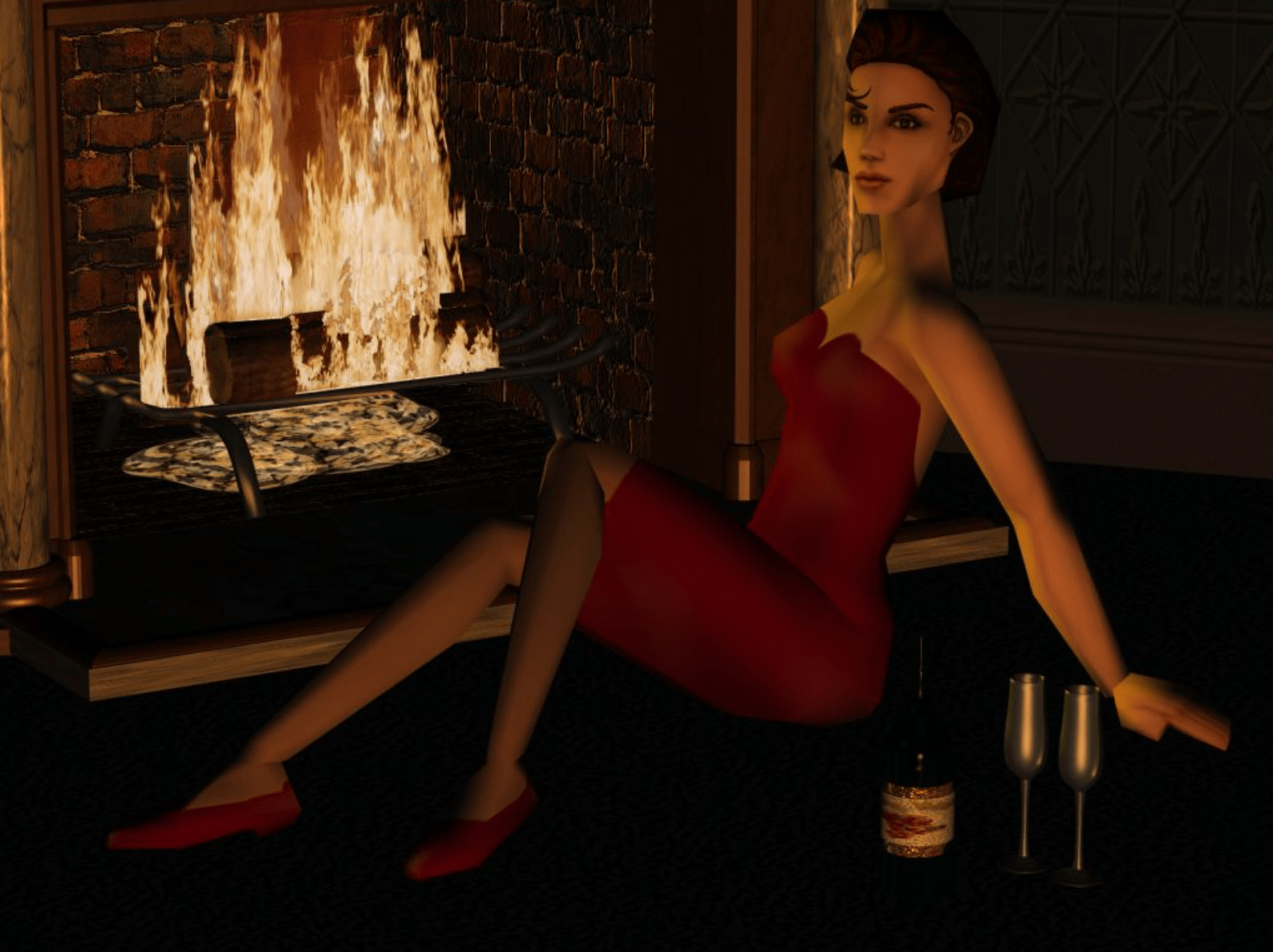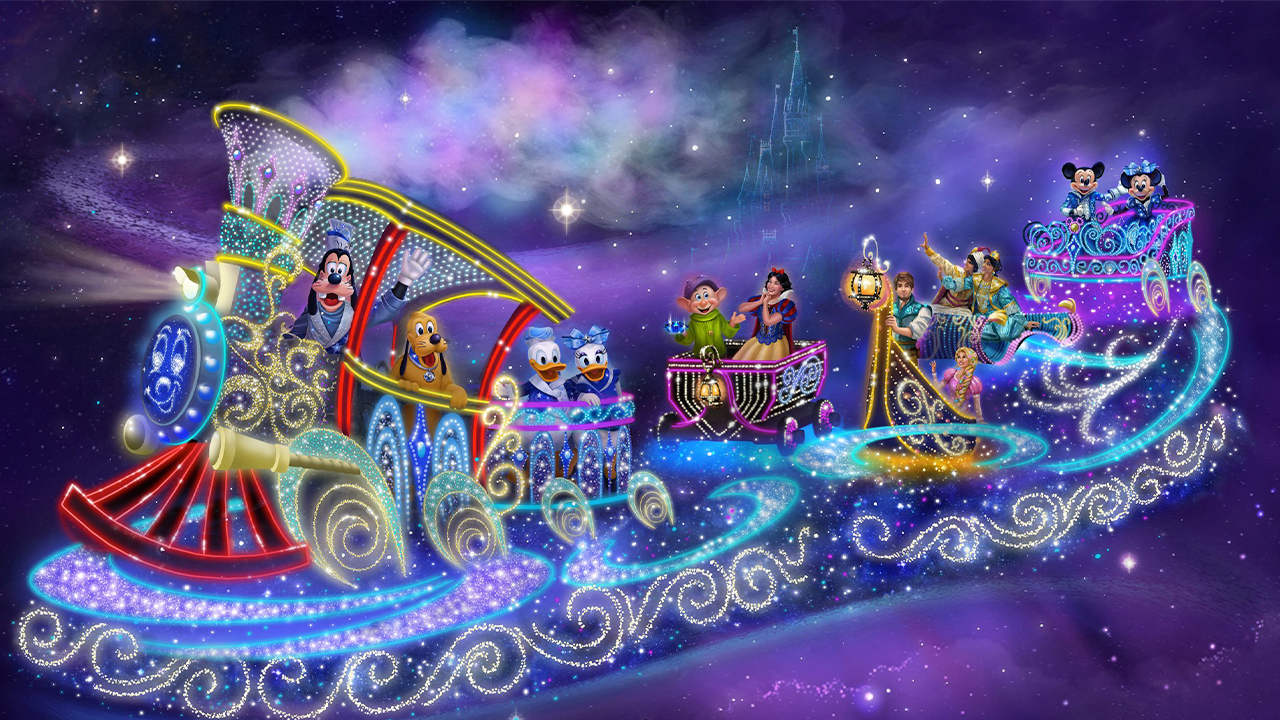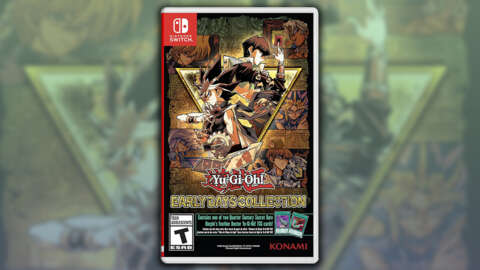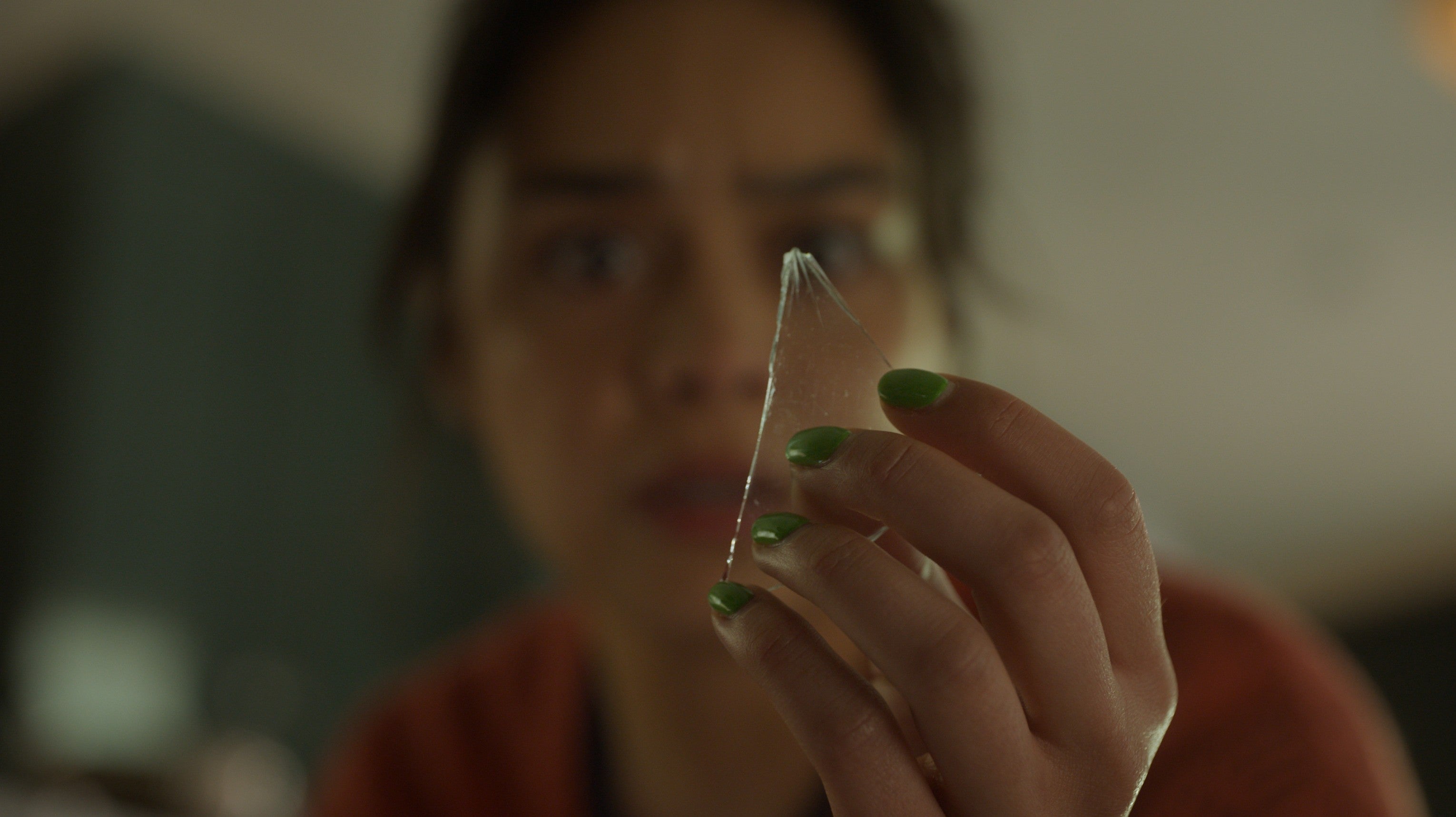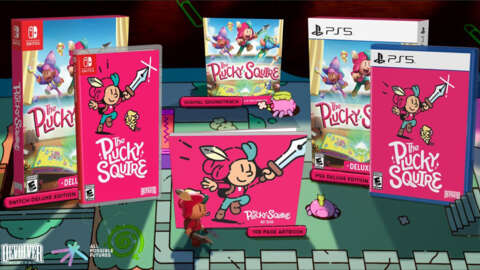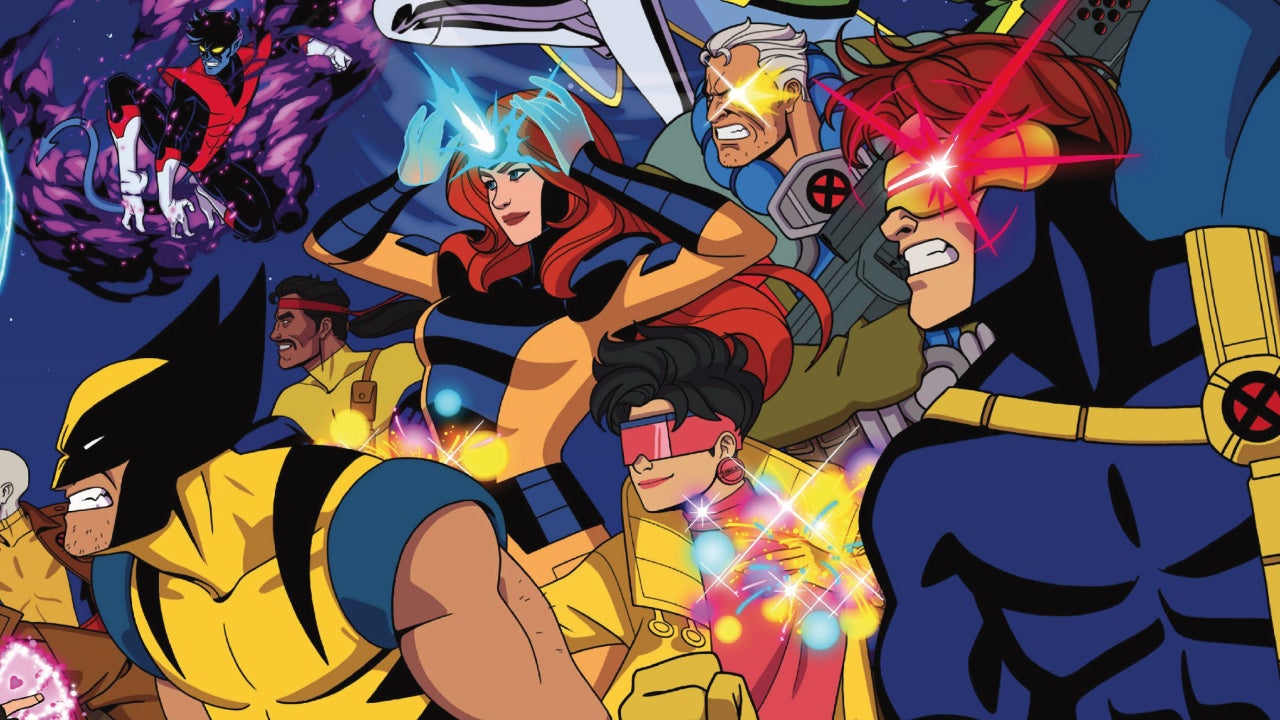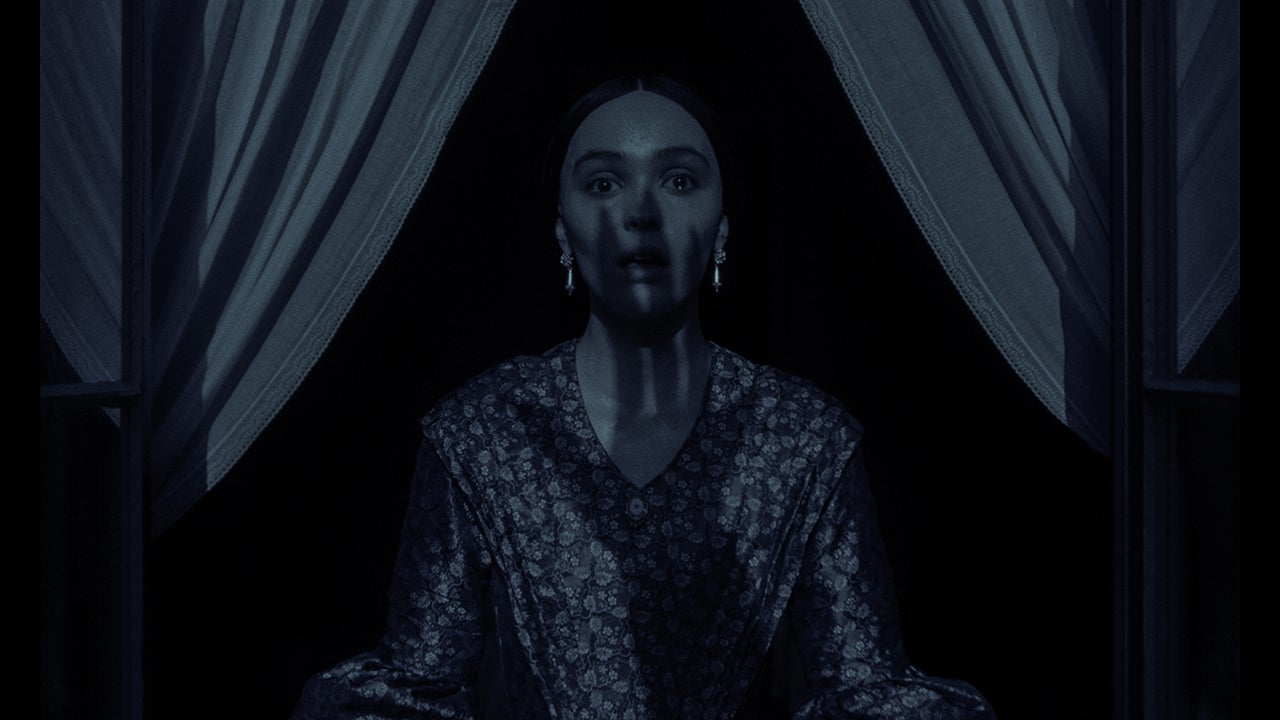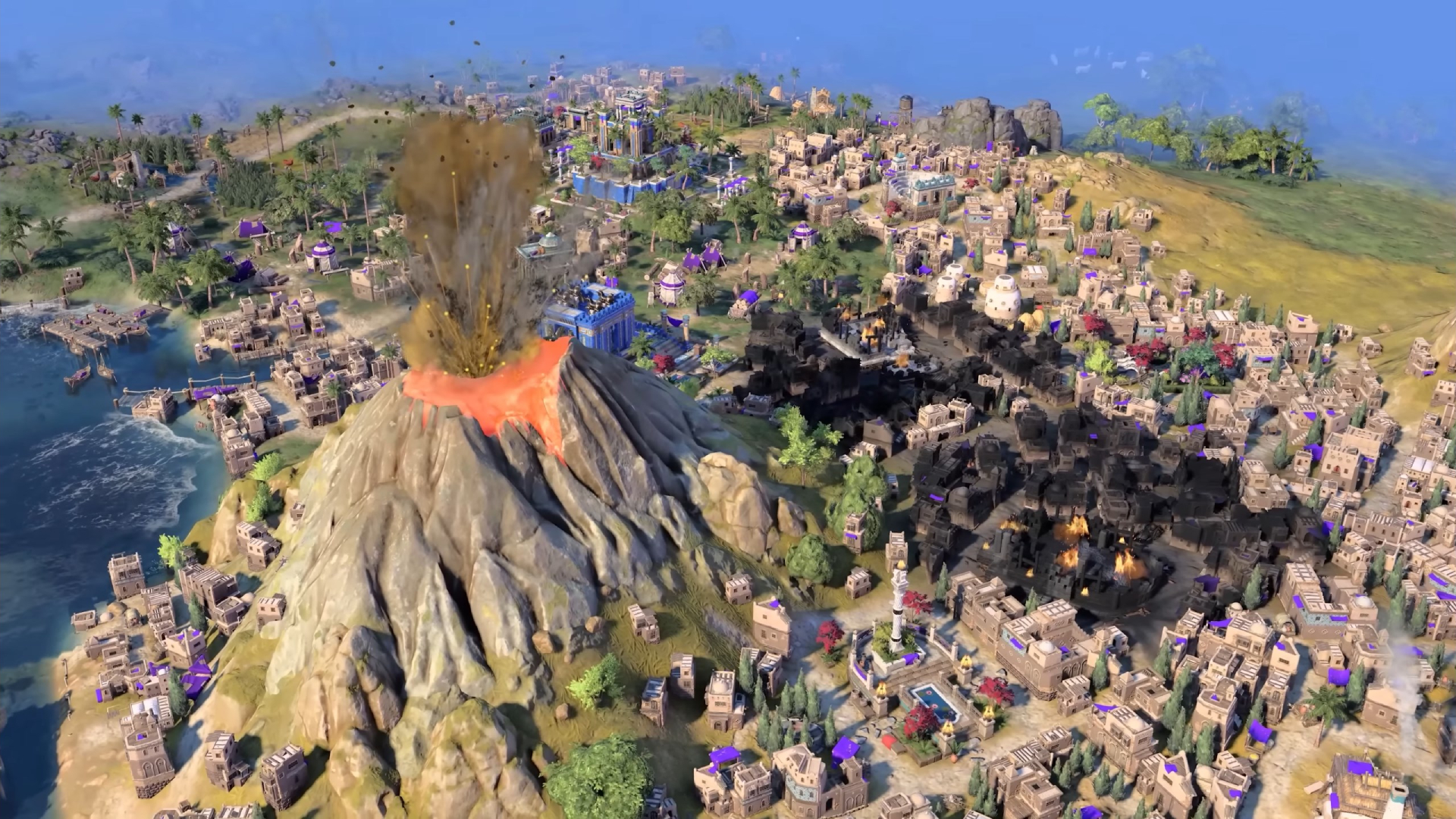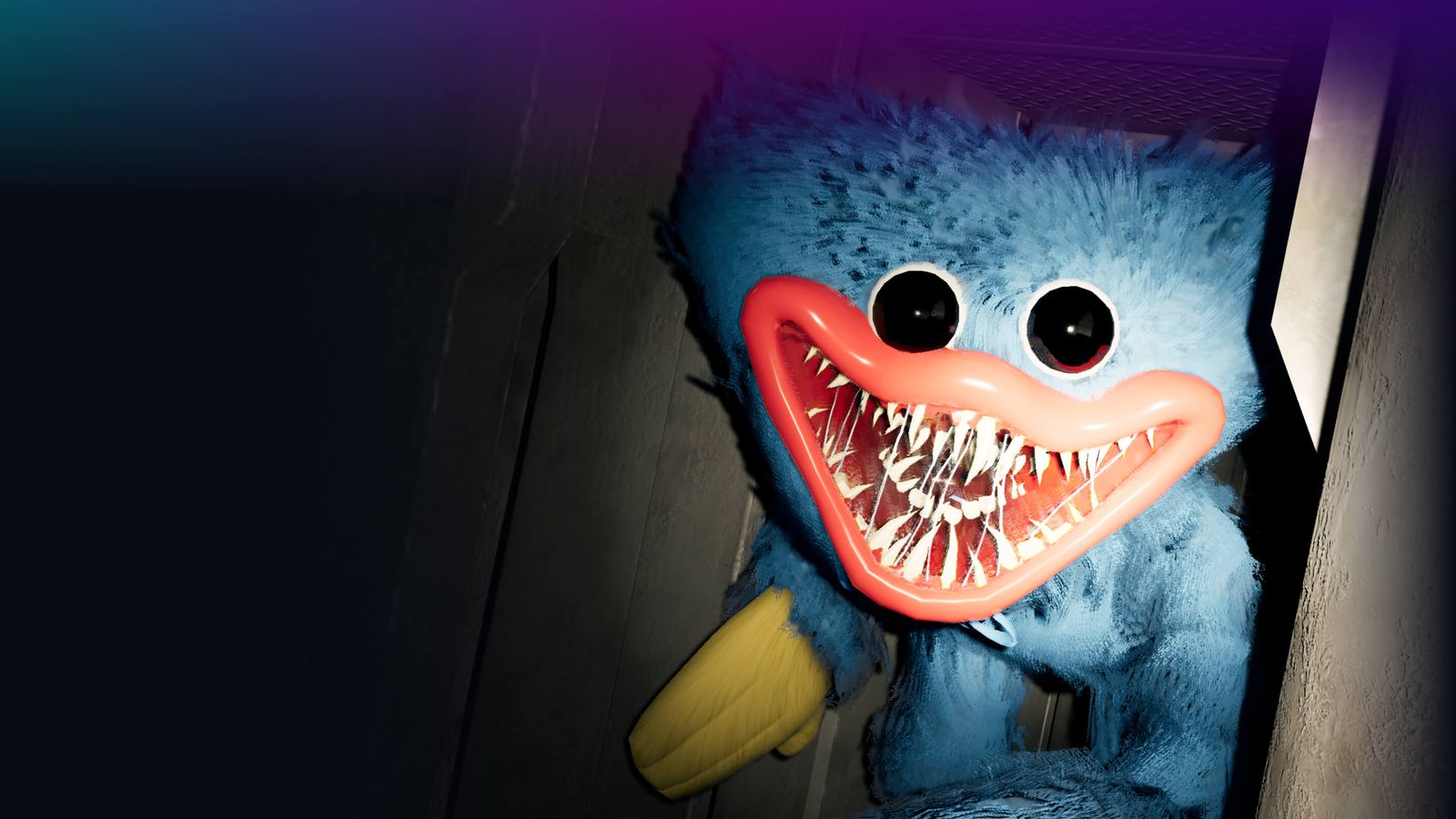
For nearly four years, Lyndsay Pearson has led The Sims franchise as the creative franchise vice president at Maxis. But her legacy at the studio, owned by Electronic Arts, spans more than 20 years as she worked her way up from a quality assurance tester on The Sims, moving into an associate producer role for The Sims 2 before taking on more and more responsibilities across all four games. As The Sims grew as a franchise, Pearson’s career shifted and changed alongside it; she’s had her hands in everything from squashing bugs, building out the Bella Goth mystery, originally suggesting the Makin’ Magic expansion pack, leading the teams bringing cultural diversity to The Sims 4, and becoming the face of the franchise.
The Sims, the original game and the start of the franchise, turned 25 this year, and Pearson’s been around for much of that time. Polygon spoke to Pearson about both the anniversary and her career — and how they intertwine.
“The Sims continues to iterate and evolve itself,” Pearson said. “We’ve always been the place you go to play with life, to experiment, to be part of this big and awesome community. And that’s just who we are. That’s just how we navigate The Sims, and there are so many possibilities on the horizon for where else we can go. We want to keep innovating, keep evolving, keep interacting with our community to hear what they like, what they want, what they’re looking for. And I think that we just see that as setting us up for the next 25 plus years.”

[Ed. note: This interview has been edited for length and clarity.]
Polygon: You’ve been with Maxis and Electronic Arts since The Sims. Let’s talk about your first job working on the franchise.
Lyndsay Pearson: Absolutely. I started in QA, which was quality assurance testing at the time. My friend who was at EA at the time warned me not to tell them that I liked The Sims, but of course I was like, “But I love the Sims.” I put it on my little list of games that I played, and of course they put me on that team. I joined as The Sims team was working on Vacation. They were finishing up the Vacation expansion pack and moving on to Unleashed. So some of my first experiences were testing cats and dogs and puppies, and I remember spending a week trying to figure out how to break puppies and kittens. There was a really sad week — I had to play with my pets dying.
Polygon: Oh no!
But it was fascinating because I learned a lot about the development of the game by trying to break it. And I would look at like, OK, I’m going to push this simulation as far this way. I’m going to crash this motive. I’m going to block this thing and figure out how to break it. And I learned a lot by starting to interact with the engineers and designers to understand what was going on behind the scenes that drove that. I did testing for the Unleashed pack and the Superstar pack, and then I moved into design and production on Makin’ Magic. My first year-ish of The Sims was a lot of testing, and then I moved into production and a little bit of design, and they let me do art once in a while, which was great.
I made some walls and floors for The Sims. I wrote a lot of text. Makin’ Magic was the last pack we did for The Sims 1 and The Sims 2 was well in development. That team was kind of a really scrappy little team that got to do whatever we wanted. We knew it was our last expansion pack before The Sims 2, so we got to do a lot of fun stuff. It was a good experiment.
Then I moved into production for The Sims 2. My focus there was on the base game stories. I built all of the neighborhood stories and I got to sort of be the first save game that people played. And then I just never left production. I love production. I’ve dabbled in creative direction and design over the years. And now my job is a lot of design and production combined of — how do we take this great idea of what The Sims could be, and what we could mean, and how we represent ourselves and bring it to life.
It’s such an interesting trajectory to go from QA — who knows the game better than someone who literally spent their time breaking it from the inside out? Can you walk me through each evolution of your job and how that changed throughout the development of The Sims into The Sims 2, The Sims 3, The Sims 4, and now continuing into the future of the franchise?
When I moved out of QA and out of breaking the game into production and design, it was a different perspective. Again, I was very used to breaking it, as you said. So moving into like, “Oh, now I have to plan it,” it was cool because I learned a lot about the pitfalls that might break and I learned a lot about how the game worked so I could use that to work with the designers to say, how should these systems interact? Makin’ Magic being that last pack, we did a lot of systems that really pushed the extremes of the game because spells particularly were kind of overtly breaking the game. But that was really fun because we had a chance to just really play with it and push the extremes. So moving into The Sims 2, The Sims 2 was pretty far along at the time that I moved into that project.
I came in to help with wrapping up a lot of different features and then starting on the neighborhoods. The game was far enough along that we were like, OK, we need to kind of start putting this into stories and houses and backgrounds.
I’m pretty sure in my first week I crashed the entire build for everybody. I tried to check in a roof the wrong way or something. I did a little bit of UI work with another producer who went on [paternal] leave and I had to figure out how to do UI in a weekend. I was like, alright, I lose my job now. So it was a little bit crazy. I think we were then about nine months of trying to finish The Sims 2. There was a lot happening, but it was super fun to get to think about, OK, we have this wonderful new game that is now about lifetimes and ages and families.
How do we highlight all of those features through our pre-made stories? How do we connect these households? How do we set them up with interesting stories that you can jump right into? How do we start establishing some lore and backstory? And that was really new for The Sims. The Sims didn’t think of it that way. We’d put characters in, but we didn’t really build backgrounds for them. But The Sims 2 had memories and photo albums and all these features that we could tell a tale. So I spent a lot of time doing worlds for The Sims 2. I moved into more feature production as expansion packs went on. I worked on cars, I worked on businesses — all these different things we did in The Sims 2.
As I moved into The Sims 3, I moved into more of a production leadership role. So I was leading a team of producers who were working on core gameplay, and routing, of all things, because figuring out how to get your Sims to walk around in [an] open world is challenging.
I spent a lot of time with our engineers trying to figure out how to get them to go to the right places. And it was really exciting because we were doing a number of things different with the core game than what we had done in The Sims 2. So you’re sort of reinventing things that worked already, but trying to do it in a new way. And that’s an interesting balance. The biggest evolution moving through The Sims 3 of course is the open world changed the way you kind of encourage players to play the game. You wanted them to be out and interacting with characters rather than waiting for things to come to them. And then as we moved into The Sims 4, we really took the focus to the Sims themselves again and to the heart of what they are thinking, what are they feeling. How are they moving about this space? How are they driving the story? And again, we had to sort of rethink how all the features work together to accomplish that. So it was a really interesting transition.

What memories from the early games stand out to you?
Man, I remember setting up a The Sims 2 demo for one of the E3s, because I think we went to a couple of them, and we were trying to script stimulated behavior, which is really a fool’s errand because the simulation never wants to do what you wanted to do, but we could put in sort of prompts to encourage them. For The Sims 2 at least we could feed in particular wants trees to encourage the Sims to sort of want to do certain things. I remember working on this demo back and forth a million different times. We were at a pool party and there was a pool house and just getting everything staged correctly was a challenge because you had to have everything at the right state so that we often run into the problem where the buffet table that we had at the party, the minute you started the demo, everything, all the food would turn rotten because it had been saved so many times and its state had been messed up.
So it was just all these things to remember to get in sync. And for some reason we were working on it in the middle of the night one night, and I don’t know why I didn’t know this before, but I zoomed into the turkey on the buffet table and realized that all of its blend shapes lived within it. So there was this miniature turkey in the big turkey and that was the funniest thing in the world at the middle of the night trying to get a demo, but it was just so random. And I was like, what is this crazy game? And we just run into those moments all the time. One of the funniest things I remember vividly about base game is because I was working on the neighborhood houses too and all the community lots, I would have nightmares about them burning down as I built them. I would literally wake up and be like, “Oh, my community lot burnt down again.” Clearly some stress dreams. I remember it very vividly.
It was such a fascinating time, because the games break in the silliest ways when you’re getting them finished. I remember testing out something with relationships while we were developing The Sims 2 and my Sim was cheating on her boyfriend, but her boyfriend was a townie, and so it meant that his family was every other townie in the neighborhood. So any time she went anywhere, they were all furious at her. And I was like, what have we done? And it was all part of development and it was just the funniest thing that would break. It was a fun time.
Did you have expectations of what The Sims would become? There are so few games that have such a legacy.
Yeah, by the time I joined The Sims, which was a couple years in, they already knew they had something special because the first few expansion packs had done really well. The base game had done really well, and they clearly had committed to making a few others. So there was this idea that, wow, we really struck on something that resonates and we don’t quite know what the magic formula is yet, so just don’t mess it up. The Sims 2 was scary because we knew that a lot of The Sims had worked so well that we didn’t want to mess it up, but we wanted to introduce a different twist in a different perspective, which is where 3D came from, which was certainly just graphical advancements, but also lifetimes. And early versions of The Sims 2 were really just like a three dimensional version of The Sims, but we realized that didn’t carry over the same way because now that you have these different ages without any sort of progression, it just felt really stagnant.
“It would be like, pizza’s in love with you. And you’re like, no, he’s not.”
And that the notion of then lifetime and lifetime aspirations and wants and fears came in kind of late in the game development honestly, because we needed this other compulsion and the fear or uncertainty the team always had is are we making changes that are better, or are we going to accidentally undo something that worked really well that we just didn’t understand? And honestly, I would love to say we’ve totally solved all of that and now we know for sure, but the game is so expansive and players play it so many ways that you’re never totally sure which one magic word is the thing. And so it really is the combination that is where the special magic comes from. And so we have to figure out how to keep balancing all of those things. And that was true going into [The Sims] 3, going into 4 is it’s always been something we have to consider if we have all these people who view The Sims in different ways and have played it in different ways. Whatever point in their play cycle, they come back. Maybe they played it as a kid and they just wanted to set fire to everything, but now they came back as a teen and they want to date. And it’s really interesting to see them change, and the game has to stretch for all of that.
Has the way the team thinks about the game changed over the years?
There’s a lot of core philosophies from the very, very beginning that have always held true. And so we can always come back to that. The Sims is about giving you choices as a player. We’re giving you the — pick your metaphor, the crayons, the toys, whatever it is — to create the world you want to create. And that’s always been true. The way we’ve manifested it has changed over time with fidelity and types of features. But that is a core essence, providing players the ability to create themselves and people that they know has been a driving force in our creative tools all along. So we can always come back to this core DNA and principles that you can lean on and say, okay, this is The Sims 3. We know that that works. We know that matters. And that at least helps it not feel as daunting because you know, [you] can come back to that and say, okay, how do I push this forward? And then I think the things that have evolved on top of that over time is the commitment to letting players tell stories. And that opens up a different level of interpretation and a different kind of feature set that we would build. A more overt commitment to being more inclusive and representative of more areas in the world and more experiences is something that has changed how we think about the feature sets that we build. And that has evolved over time. So I mean, I think the team always takes it very seriously that this is a big responsibility for us, but also very exciting because there’s just endless opportunities for what else we could keep adding into this universe.
This is a personal question, but you’ve grown your career so successfully alongside The Sims. What’s that been like for you?
I love it, honestly, because I do feel like the Sims is so relatable, even if you’ve never played it, you’ve heard of it or someone who played it and you have some sort of anecdote about it. I love that people always feel that they can share that. The number of times I’ve been in a meeting where we’re meeting a new partner or someone outside the company, and they’re always really hesitant to be like, “Oh, I played the Sims.” I’m like, “Oh yeah, what’d you love?” And they’re like, “Well, I killed some Sims.” And I’m like, “Everybody does. It’s okay. It’s fine.” So I feel, it’s so funny, I often think about it, wow, I can’t believe I’ve been here for so much of this journey, but I still feel like it’s new and fresh all the time because I get to hear those stories and those experiences and the things that it has meant to people. And oftentimes some of our hardcore fans know way more about it than me, and they’ll ask me stuff that I’m like, “I don’t remember. Did we do that?” Because, I dunno. It’s exciting. And it’s certainly one of the things that has kept me here for so long is I just feel like there’s always something new. There’s always something to learn, a new way for us to innovate, to reach a new audience, to sort of connect with a different piece of tech. So I have felt like the Sims has constantly let me innovate and evolve as a developer, but that has meant that personally, it’s just very rewarding. I get to see it speak to a new audience again.
Does The Sims and The Sims 2’s re-release and playing it again inspire the way you think about the games and the franchise’s future?
I think that we regularly find, especially now, a lot of people who grew up with The Sims are aging into their jobs and careers. And so we have a lot of people who come in who played The Sims in their formative years, and they definitely bring that into the way that they think about designs and features and UX. And I think this is a great opportunity for those of us who haven’t done it in a while or who never got a chance to play it, to do exactly that and kind of learn from the past and go, “Wow, this system really worked well,” or “Wow, that feature really worked well.” I think there’s also, there’s a really good, what’s the word I’m looking for? Sort of difference to see how far we’ve come because the way we represent features now has changed so much. And that’s actually a really neat evolution too, to say, oh, how could we learn from that and think when we think about how we could reposition things in the future? Right. Yeah, I don’t know. It prompts so many reactions and feelings from people that it’s going to be fun to see.
Are there any bugs that you still think about?
Yeah, I mean, one of my favorite things that I was talking about just recently was in Hot Dates in early The Sims when we were working on Unleashed, your date would occasionally show up as a cat or dog, but they thought they were a human, so they would float around in the air as if they were walking with you. And it was awesome. I had so many dates with cats and dogs while that was broken. It was so funny.
One of my favorite early bugs from The Sims 4 was a tuning bug that drove all these characters to go to the gym. And at the gym, they encouraged them to work out, but it kept attracting all these elder sims. And if you drive the elders to work out too much, they can die from exertion.
But the tuning was so strong that it turned into this elder death trap, so all these elders were running on the treadmill, and they’d be sweating and then they’d all get off and die. And I was like, “Well, what is happening?” That was hilarious. Lots of funny sound bugs over the years stick with me because you’d see one item that was supposed to play a certain sound and then it played the wrong sound. So we had, I can’t remember which one it was. There was definitely a campfire that played a weird Sim giggle noise that was nice and creepy. But we had another one that accidentally played a scream, and you’re like, “What is happening?” The Sims bugs are just crazy. I enjoyed a lot of The Sims 2 bugs where Sims would get relationships to non-human items. So it would be like a pizza icon. It would be like, pizza’s in love with you. And you’re like, no, he’s not.
